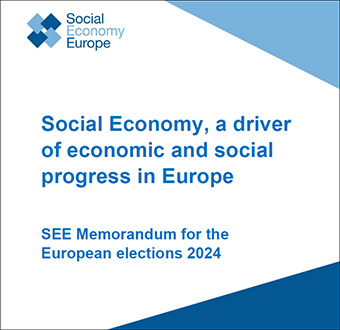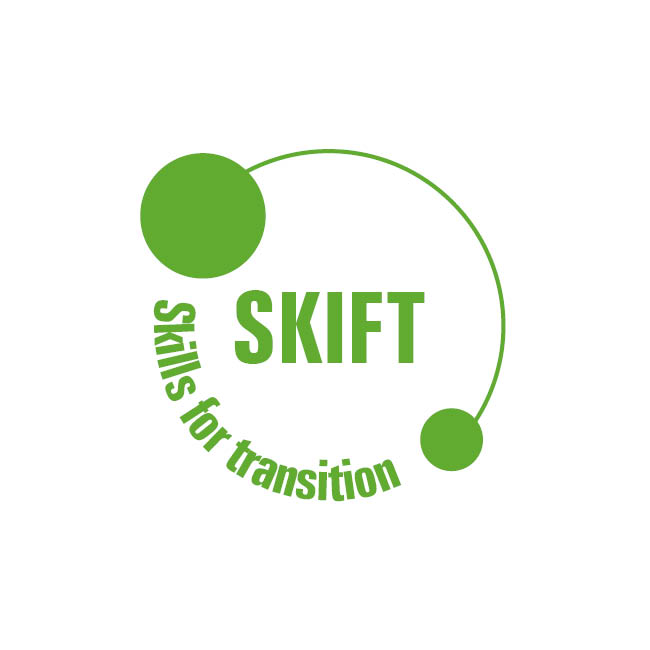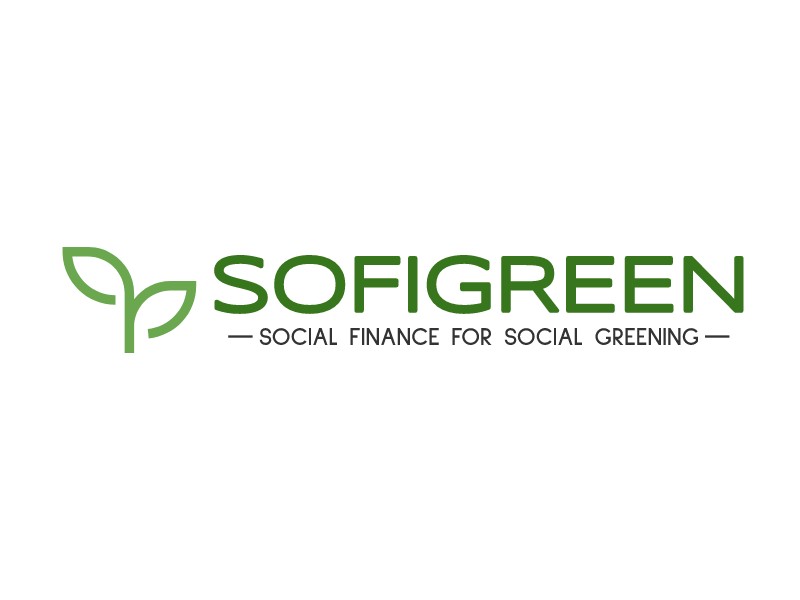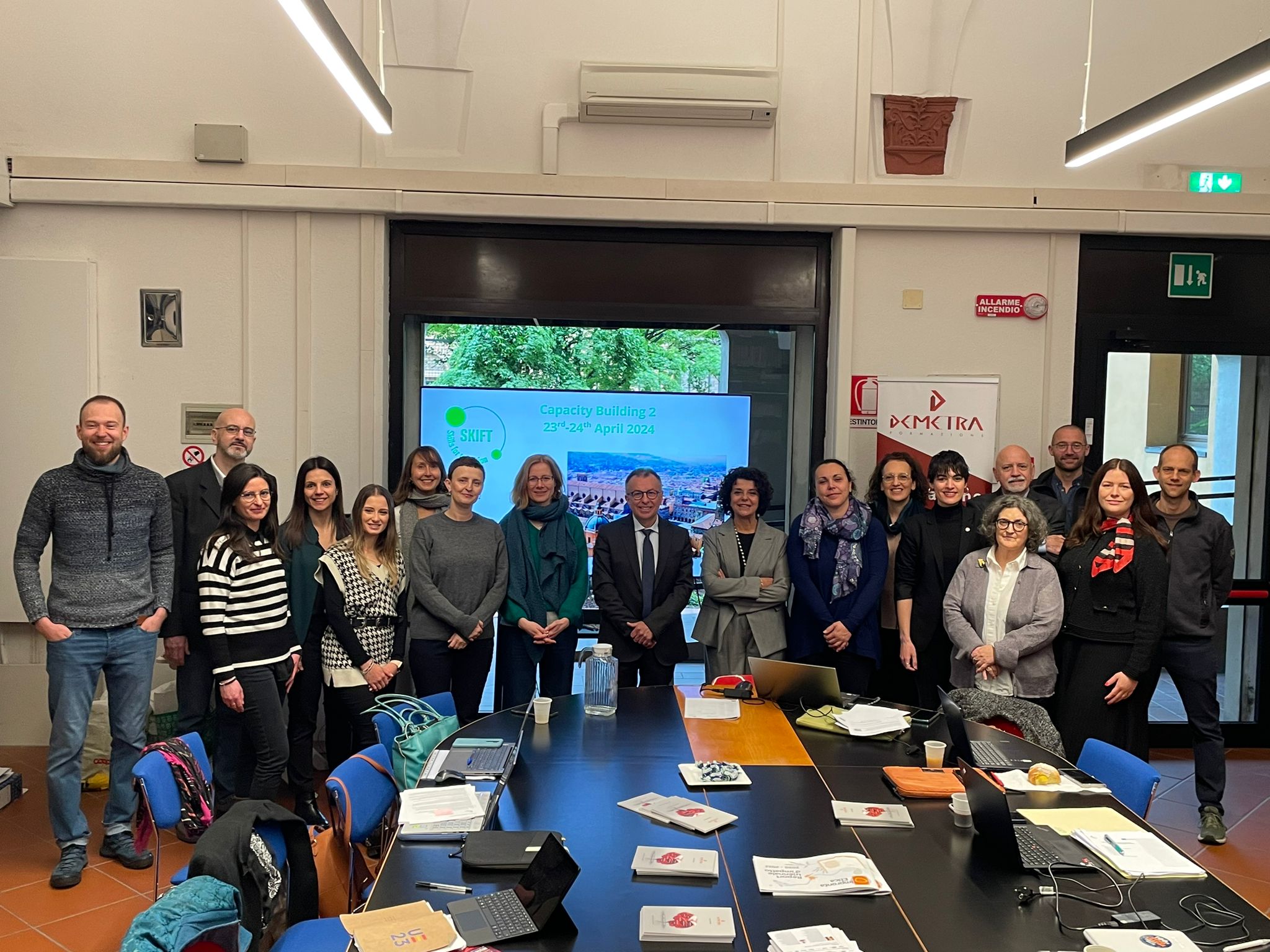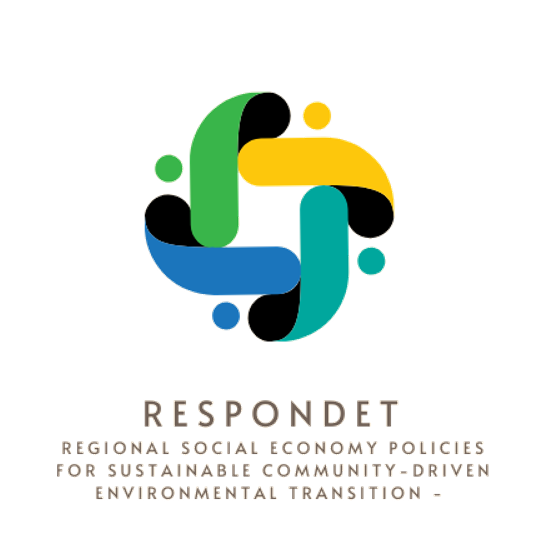

Circular economy at the centre of the second RESPONDET mission
How to strengthen the significant potential of the social economy to contribute and add value to the development of the circular economy through appropriate public policies?
This question stood at the centre of the second transnational RESPONDET workshop co-organised by the region of Wallonia (Service Public de Wallonie), CONCERTES and REVES aisbl on 18 and 19 October 2022 in Namur (BE).
Participants representing regions/cities and social economy organisations from the Region of Wallonia, Catalunya, Małopolska region and the Municipality of Turin took the occasion of a variety of encounters with policy-makers and social economy initiatives in the circular economy from Wallonia to discuss possible improvements of local/regional strategies and policies.
The workshop was introduced by Isabelle Quoilin, Head of SPW Economy, Employment and Research and Frédéric Rasson, Head of the SPW Social Economy Directorate who presented the general context and history of regional social economy policies and regional policies promoting the circular economy, including the Alternativ’ES Wallonia and the Circular Wallonia Strategy. Social economy policies in Wallonia have been allocated in recent years an ever increasing budget. They also express the willingness of policy-makers to recognize the social economy not only as an actor facilitating the integration of different (disadvantaged) groups into the labour market and society, but also and above all as a vector of innovation with social and democratic added value in a number of areas, including the circular economy.
More detailed presentations of the Circular Wallonia Strategy, but also of the Digital Wallonia Strategy with its recently launched Digital 4 Circular Wallonia Programme provided an occasion for participants to exchange on opportunities and challenges of policy-making trying to go beyond sectoral and departmental borders and to construct truly participatory approaches.
The focus on regional policies in Wallonia was complemented by an intervention of the RESSOURCES federation, an organization bringing together social economy actors operating in the field of the circular economy. RESSOURCES illustrated main challenges linked, for example, to policy-making (with the latter still showing some tendencies to favour recycling over reuse etc.) or to green and social washing, but also solutions such as the REC’UP and SOLID’R labels which are implemented with the support also of public authorities.
Study visits at the Ressourcerie Namuroise and the Comptoir des Ressources Créatives complemented the programme of the first day.
Day 2 was entirely dedicated to a more intensive exchange between RESPONDET partners and local stakeholders on the policy framework and practices regarding circular economy (from a social economy perspective) in all four partner territories, as well as on possible improvements to be proposed in the framework of new and/or updated local/regional action plans. From the discussions and the background papers RESPONDET partners had prepared ahead of the workshop it became clear that, even though the circular economy now has an increasingly prominent place on the agenda of cities and regions, much still remains to be done to make existing programmes and instruments also accessible for the social economy. RESPONDET partners also expressed some concern regarding a risk of blurring the social economy concept towards mere, rather CSR-related social impact criteria – a fact which opens doors for green and social washing and leaves the potential of the social economy to combine circular economy, social added value and participation unused. At the same time, interesting practices and cooperation between public authorities and social economy in the framework, for example, of the development of labels, living labs, the creation and management of Apps or even the co-construction of public policies could be identified and will serve as an inspiration.
____________________
Linking circular economy, social economy and digital transition:
Two questions to Frédéric Rasson and Maité Bielen, Region of Wallonia
During their meeting in Namur, RESPONDET partners seemed to agree on the fact that the social economy and its potential are still not very visible in an increasing number of strategies and policies promoting the development of the circular economy in their regions. The latter target mainly mainstream enterprises. In Wallonia, you are currently trying to change this. How?
FR/MB: Social economy is seen in Wallonia as a lever to promote an economy that places the human being at the centre of the discussion. In 2008, the Walloon Parliament voted a decree by which it recognises the social economy and which contains a definition of the social economy.
Besides, Wallonia has its proper strategy promoting the social economy – AlternativES Wallonia – which has also been allocated a specific budget. This strategy focuses on five priorities and related sectors of activity. Three of them are directly or indirectly related to the circular economy :
- reusing goods and materials: a ‘zero waste’ and circular economy rationale ;
- energy: support to green and renewable energies;
- food and short circuits: support to quality and sustainable production methods.
Wallonia has also adopted others strategies, such as Circular Wallonia and Digital Wallonia. For us, AlternativES Wallonia is a tool to highlight the role of social economy as an answer to the challenges our world is facing. Links are made between the three strategies. We also have a lot of meetings to ensure the place of social economy in the priorities of the actions of the Government.
To what extent and how will social economy actors in Wallonia be involved in the further development of policies and actions linked to the green and digital transition (which we hope will also be a social transition)?
FR/MB: Social economy actors are deeply involved in the development of policies and actions linked to the green and digital transition. This happens in different ways:
- Through discussions around the needs of the partners of the social economy environment and the development of policies related to these needs: This is made possible by the existence of Federations and concertation, such as Ressources and ConcertES, that have members related to both areas – social economy and green transition.
- Through the creation of specific programmes related to social economy and green/digital transition (example: Digital EES | DigitalWallonia.be).
- Through the inclusion of the social economy actors in events, networking or created tools (example: Actualités | Circular Wallonia (wallonie.be).
Frédéric Rasson is director of the Social Economy Directorate at the Department for Economic Development of the Wallonia Region. Maité Bielen is the coordinator of the Innovative and Alternative Economy Unit of the Social Economy Directorate.

______________
Social Economy-based Circular Economy Initiatives in RESPONDET partner regions and elsewhere
City of Turin Living Lab: Experiment “Edilizia Circolare”
The City Lab of the City of Turin was created as a Living Lab to promote the development and testing of innovative solutions to challenges the city and its inhabitants are facing. It also serves as a vehicle to stimulate cooperation among different actors – economic players, researchers, citizens, public authorities … “Green, climate resilience and circular economy” is one of the four priorities which the City Lab follows currently.
In this context, the project Edilizia Circolare came into being, which applies the concept of reuse and recycling in the construction industry. The aim is to give life to a new way of approaching construction, following criteria of sustainability, originality and quality, promoting the conversion of material, intellectual and manual resources towards alternative architecture and design projects.
The final product of the experimentation will be the restyling of a space entrusted in concession by the City of Turin to the Social Cooperative Paradigma, which will host a cafeteria for members and new laboratories.
Many partners will collaborate in the project, ranging from public authorities, academics from the Politecnico di Torino and architects to craftsmen, graduate students, cultural associations and other social economy players. Potentially reusable materials will be donated by citizens, companies and local artisans, to be th en transformed and come back to life in new furniture and finishes. Throughout the course of the action workshops and focus groups for professionals and for fans of do-it-yourself will be organised.
en transformed and come back to life in new furniture and finishes. Throughout the course of the action workshops and focus groups for professionals and for fans of do-it-yourself will be organised.
The involvement of the Lingotto and Mirafiori Sud districts of the city is fundamental and made possible thanks to the support of the social cooperative Paradigma, Associazione Tablò, Casa nel Parco and Associazione Bene Comune. They are fundamental in mobilising craftsmen, businesses and local inhabitants with the aim of promoting social cohesion through training and exchange, as well as a sense of responsibility and solidarity through neighbourhood projects.
Website: https://www.torinocitylab.it/en/edilizia-circolare
………………………………
Malopolska Region/Cracow: Nowohucka zero waste map. Inhabitants of Cracow, be #closer!
 In 2019 the project “Nowohucka zero waste map” was awarded the 3rd place in the Climathone initiative in terms of mobility and zero emission. It is a good example of cooperation between public administration and a social economy entity. Created by a citizen of the Nowa Huta district in Cracow, who is also a member of the Polish Association Zero Waste, the Nowohucka Zero Waste Map encourages the inhabitants of the district to avoid waste. The map presents public utility points such as shops and service points that can be reached within a 10 minutes walking distance. The Public Transport Board – a municipal entity – supports it by providing three publicity boards in three different spots on which the Map is visible. The idea is to promote a “go local life style” where citizens use their own bags, boxes, cups and visit service points located nearby. The main aim of the project is limiting waste such as plastic bags, food boxes, coffee cups that become trashes soon after being bought.
In 2019 the project “Nowohucka zero waste map” was awarded the 3rd place in the Climathone initiative in terms of mobility and zero emission. It is a good example of cooperation between public administration and a social economy entity. Created by a citizen of the Nowa Huta district in Cracow, who is also a member of the Polish Association Zero Waste, the Nowohucka Zero Waste Map encourages the inhabitants of the district to avoid waste. The map presents public utility points such as shops and service points that can be reached within a 10 minutes walking distance. The Public Transport Board – a municipal entity – supports it by providing three publicity boards in three different spots on which the Map is visible. The idea is to promote a “go local life style” where citizens use their own bags, boxes, cups and visit service points located nearby. The main aim of the project is limiting waste such as plastic bags, food boxes, coffee cups that become trashes soon after being bought.
Website: https://zero-waste.pl/nowohucka-mapa-zero-waste-krakowianie-badzcie-blisko/
………………………………
Catalunya Region: Dignidart SCCL – Cooperating with local administrations and other players on zero waste purchase
 The “For a zero waste purchase” project, realized by Dignidart SCCL in cooperation with other cooperatives, and subsidized by the Generalitat of Catalonia under the Singular Projects line for the social and cooperative economy, arises from the need of the province of Tarragona to find solutions to the problem of generating an average of 10,775 tonnes of single-use packaging per year. The initiative consists of developing a variety of actions to reduce the production and consumption of single-use packaging, involving both consumers, the local network of shops and local administrations. At the same time, through the development of a production and commercialization circuit among social and solidarity economy organisations, the project promotes the employment in particular of persons in vulnerable situations.
The “For a zero waste purchase” project, realized by Dignidart SCCL in cooperation with other cooperatives, and subsidized by the Generalitat of Catalonia under the Singular Projects line for the social and cooperative economy, arises from the need of the province of Tarragona to find solutions to the problem of generating an average of 10,775 tonnes of single-use packaging per year. The initiative consists of developing a variety of actions to reduce the production and consumption of single-use packaging, involving both consumers, the local network of shops and local administrations. At the same time, through the development of a production and commercialization circuit among social and solidarity economy organisations, the project promotes the employment in particular of persons in vulnerable situations.
………………………………
Green Transition: Latest news from partner territories and European institutions
Energy cooperative COCITER – the only energy provider in Belgium/Wallonia applying a price ceiling!
In a time of skyrocketing energy prices COCITER, an energy cooperative in the Belgian region of Wallonia, is applying a price ceiling for electricity. From 1 July 2022 (retroactively) until 31 March 2023, the 100% green, 100% Walloon and 100% citizen electricity supplier COCITER will cap the price of the electricity it sells at a variable rate to cooperative residential customers, as well as to self-employed people and small businesses (up to 15,000 kWh per year, on a pro rata basis), at 30 c€/kWh (including VAT).
COCITER belongs to 15 citizens’ cooperatives producing renewable energy in Wallonia, which sell – when possible – their electricity production to COCITER at a controlled price below the market price, but guaranteeing their profitability and excluding excess profits. For large consumers, additional consumption is supplied at the variable tariff, which is still the best on the market.
COCITER does, however, not accept any new customers for the time being.
So far, access for citizens to the sector of renewable energy, co-ownership of installations and production, had been limited not at least for regulatory reasons. Much hope is placed in the new Pax Eolienica adopted by the Walloon government on 25 October 2022, which requires industrial developers to open up wind power projects to the public. Citizens are now calling on authorities and the sector to rapidly define the modalities and accelerate the process.
………………………………
European Commission: “Transition Pathway for Proximity and Social Economy” published
Last 14 November 2022, in accordance with what has been foreseen by the updated new Industrial Strategy of the European Union, the European Commission launched the “Transition Pathway for Proximity and Social Economy”. 
This document, which is supposed to provide concrete guidelines towards green and digital transition (called “the twin transition”) in the proximity and social economy, builds on the outcome of a co-creation process with stakeholders, which was launched in December 2021 with the publication of the Social Economy Action Plan and several Staff Working papers. Stakeholders had the opportunity to raise their voice and discuss the future Pathway in the framework of an online consultation and several workshops.
The process led to the identification of 14 action areas (seven for green transition, seven for digital transition) and 30 concrete actions.
With regard to Green Transition, action areas include elements such as the creation of financial incentives, supportive regulation or certification, labelling and self-regulation which require action in particular by policy-makers/public authorities, but also aspects such as cooperation between enterprises, the development of innovation, greening of infrastructures and operations, capacity-building or the development of local green deals.
With the document, the European Commission aims not only to provide orientation, but also to concretely engage policy-makers at EU, national and local/regional level, social economy organisations and other stakeholders in what is supposed to become a “co-implementation” facilitated by the Commission. In this context it also published a call for pledges.
More information: https://single-market-economy.ec.europa.eu/sectors/proximity-and-social-economy/proximity-and-social-economy-transition-pathway_en
_____________________________________________________________________________________________________________
Upcoming RESPONDET activities and events
Third RESPONDET mission workshop: Capacity-building for green transition in the social economy
RESPONDET partners will deepen their exchange around the development of social economy-based projects in the field of community energy initiatives and circular economy during a third transnational workshop to be held on 30 November and 1 December 2022 in Cracow (PL).
A particular focus in the discussion will be put on ways to foster capacity-building among citizens, (social economy) organisations and public authorities.
The programme includes meetings with policy-makers, public administration and social economy from Małopolska, study visits to local initiatives as well as interactive work sessions in which participants will confront policies and practices in Małopolska with those from other regions/cities and seek to jointly discuss concrete actions to be taken.
![]()
Views and opinions expressed in this newsletter are those of the author(s) only and do not necessarily reflect those of the European Union or EISMEA. Neither the European Union nor EISMEA can be held responsible for them.
Read More
European Elections: Help us mobilising (future) MEPs to keep social economy on the EU policy agenda
The European elections are approaching. Their outcome will decide on the direction the EU will…
REVES Annual Meeting 2024: Focus on inter-cooperation between different (social economy) actors and municipalities
REVES Annual Meeting 2024: Focus on inter-cooperation between different (social economy) actors and municipalities REVES…
OPEN CALL: POSSIBILITY FOR MICRO&SMALL SE ENTERPRISES TO RECEIVE FREE ADVISE AND COACHING ON GREEN TRANSITION-RELATED TOPICS
The SKI.F.T call for proposals is now open! Micro and small social economy enterprises…
GREENING OPPORTUNITY FOR SEEs
the SOFIGREEN call for proposal for SEEs operating in France, Italy and Spain is now…
 Docs
Docs  Support
Support 

